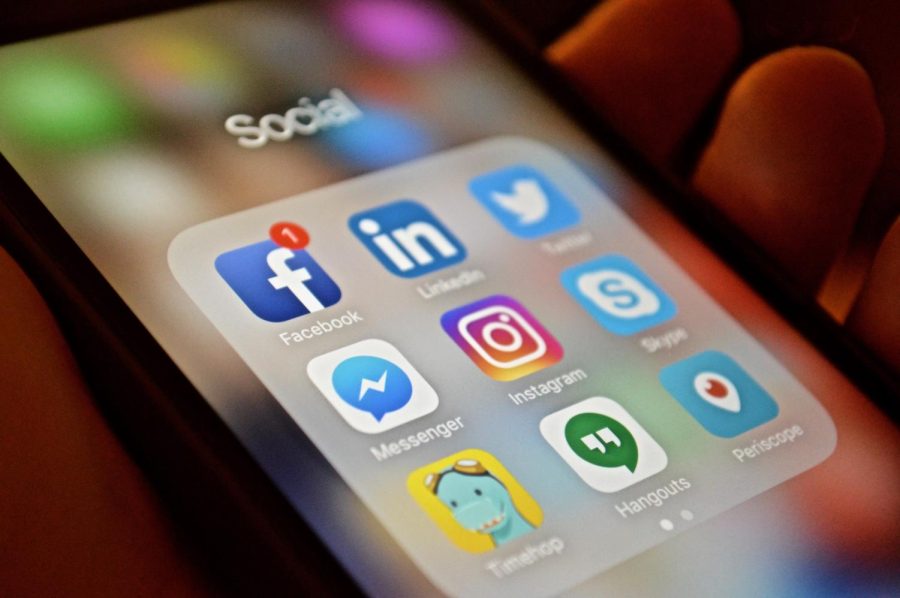An FYP of Fatalities and Feud
Our phones are hand-held windows, providing a supposed direct view into war.
It’s been a particularly eventful day. As usual, you collapse onto your sofa and open tiktok. You methodically scroll through video after video until you come across an especially intriguing clip of a Ukrainian teenager in what seems to be an underground bunker. She is begging anyone willing to pause their scrolling frenzy to donate money. Finding yourself fueled with a wave of curiosity, you quickly search for the hashtag ‘Ukraine.’ But instead of encountering further information on donations, you fall down an involuntary rabbit hole of what surreptitiously stands as Russian false news. What happened?
Evidently, both sides have taken advantage of the modern-day convenience social media provides.
With platforms like Twitter, Tiktok, Youtube, and Instagram, the general public is able to witness direct accounts and portrayals of the brutality of war, as well as have access to prompt updates on situations. This kind of transparency allows for the public to be more aware, yet doesn’t come without consequence.
As proved in 2014 when The Internet Research Agency (a Russian paid network) purposefully spread false news during the annexation of Crimea, Russia has daunting experience in disseminating propaganda. In this regard, social media is nothing but an asset. Mere days after Russia first launched its attacks on Ukraine, multiple media platforms admitted to their obligation to disassemble certain networks. One example consists of countless anti-Ukrainian accounts, all linked to a main channel known as the ‘Telegram,’ seemingly associated with the Kremlin. The channel has methodically spread malicious injunctions to involved influencers, resulting in an influx of propaganda. And coincidentally, one of Russia’s prime target audiences for misinformation has a very selective and malicious media.
Since the war broke out, China has assumed a relatively inactive yet vigilant position on the edge of all geopolitical tension. “China’s delicate position is reflected in its state media, where Ukraine is not dominating news coverage,” says Maria Repnikova, a GSU professor. With the world watching, the relationship between Russia and China has been impressively developing, this being now patently displayed through China’s media. To put it simply, domestic state media has been echoing Russian propaganda, thus China is deliberately distributing the false information to its inhabitants. Again quoting Patrikarakos, “with the changing nature of war, propaganda has taken on a new role.”
Though Russia isn’t the only country to exploit the media for its benefit. Ukraine has utilized social media not only to display the damage that has been inflicted upon them, but to single-handedly rally worldwide support, display blatant defiance to their rival, hold their supporting countries accountable for donating and consistently providing aid, and vividly display their competence in bursts of colorful patriotism. Hundreds of individual citizens have spread their voices on popular platforms, alongside the Ukrainian government itself. While we’ve been globally exposed to footage of Putin excessively rambling at the blanketed comfort of his desk, Ukraine has introduced Volodymyr Zelenskyy as a figure of nationalism and passionate courage through videos of the president touring demolished cities and taking direct action.
The modern availability of mass communication has unmistakably impacted the way in which war will play out, for your FYP is now flooded with fatalities and feud.
Sources:
- https://mitsloan.mit.edu/ideas-made-to-matter/russia-ukraine-war-social-media-stokes-ingenuity-disinformation
- https://theconversation.com/guns-tanks-and-twitter-how-russia-and-ukraine-are-using-social-media-as-the-war-drags-on-180131
- https://en.hromadske.ua/posts/how-social-media-is-changing-war-and-politics#:~:text=“First%20and%20foremost%2C%20it%20has%20enabled%20anyone%20with,at%20speeds%20and%20at%20scopes%20that%20are%20unprecedented.”
- https://www.vox.com/23005295/china-russia-ukraine-war-media-censorship
- https://www.washingtonpost.com/technology/2022/03/01/social-media-ukraine-russia/
- https://www.newyorker.com/culture/infinite-scroll/watching-the-worlds-first-tiktok-war
- https://www.scientificamerican.com/article/russia-is-having-less-success-at-spreading-social-media-disinformation/
- https://www.cnn.com/2022/03/10/china/china-russia-disinformation-campaign-ukraine-intl-dst-hnk/index.html
- https://www.vice.com/en/article/epxken/russian-tiktok-influencers-paid-propaganda

